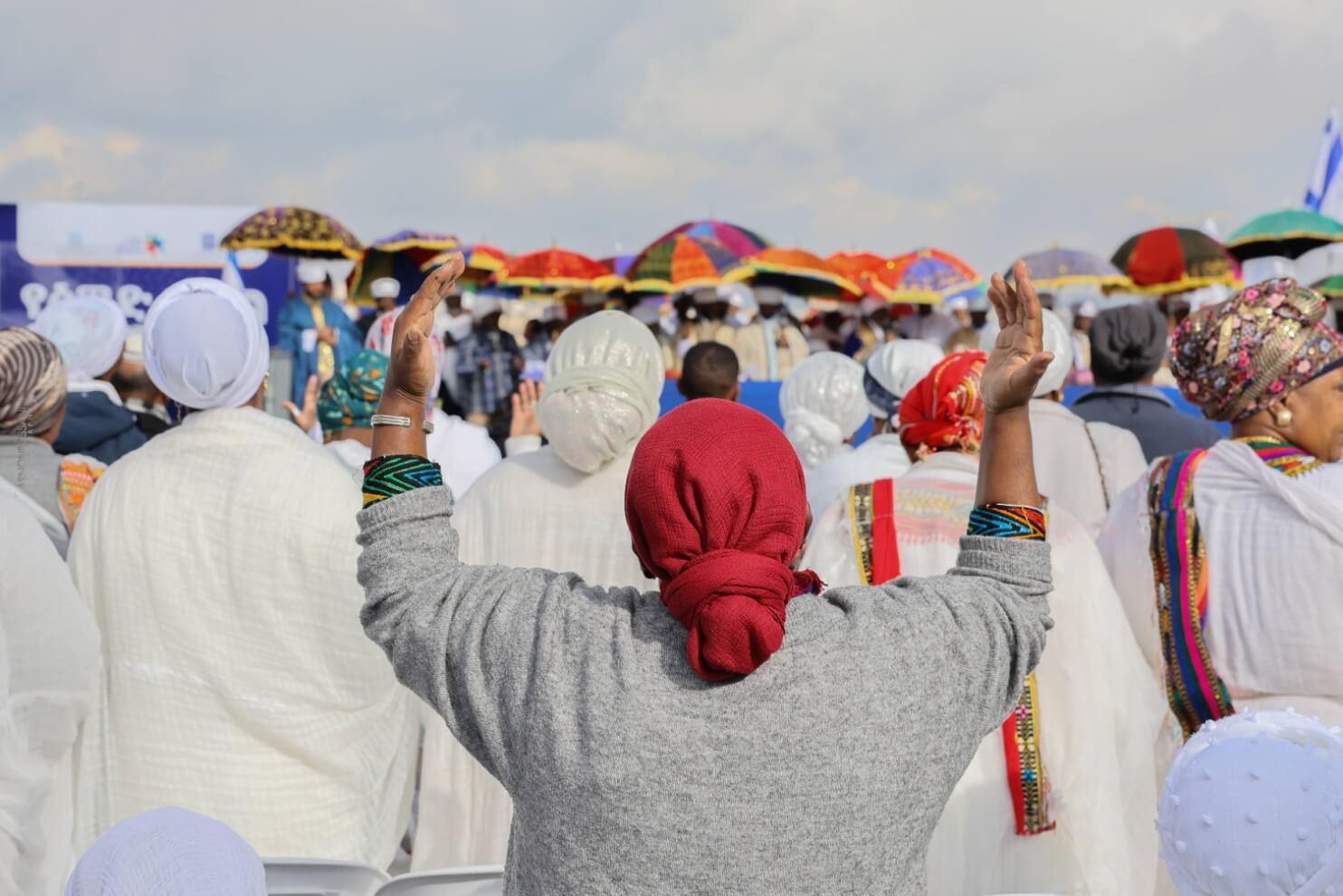
Sigd Holiday Prayers in Jerusalem

Community in Dialogue: Ethiopian Jewry in a Contemporary Research Perspective

Live broadcast from the state memorial ceremony for Ethiopian Jews who perished on their way to Israel

Sigd in Jerusalem

Call for Papers The Ethiopian Jews in Israel
The fourth conference of the Ethiopian Jewry Heritage Center, in collaboration with the Azrieli Center for Israel Studies (MALI), Ben Gurion Institute, Ben Gurion University of the Negev; and the Africa Unit, S. Daniel Abraham Center for International and Regional Studies, Tel Aviv University
February 26, 2025
Tel Aviv University
The Aliyah (immigration) of the Beta Israel (Ethiopian Jewish) community to Israel opened a new chapter in its history and in the history of Israeli society. Hand in hand with the realization of the long-standing yearning to make Aliyah to Jerusalem, the reality of life in Israel and the complex dynamics vis-à-vis Israeli authorities and society presented many challenges to the community, some of which it is still dealing with. The community’s Aliyah has increased social and cultural diversity in the country, and that, in turn, has raised different issues in the realm of religion, society and politics.
At present, 162 years after the community’s first wide-scale attempt to make Aliyah to the Land of Israel, in a journey led by Abba Mahari, and 40 years after “Operation Moses”, among the largest and most influential Aliyah operations, the life of the Beta Israel community in Israel can be examined in historical perspective. This conference is dedicated to the life, works and dynamics of the Ethiopian Jews in Israel, both immigrants and those born in Israel.
The State Corporation – the Ethiopian Jewry Heritage Center, together with the Azrieli Center for Israel Studies (MALI), Ben Gurion Institute for the Study of Israel and Zionism at the Ben Gurion University of the Negev; and the Africa Unit, S. Daniel Abraham Center for International and Regional Studies, Tel Aviv University invite scholars from all research fields to submit proposals for papers. The conference will be held on February 26, 2025 at Tel Aviv University.
Relevant topics include, but are not limited to, recent research on processes and events relating to the Aliyah and the adaptation to life in Israel, and on developments in different fields, such as culture, education, heritage preservation, documentation and commemoration, dynamics vis-à-vis state authorities and different organizations and groups, coping with racism and exclusion, and dynamics within the community. To mark the 40th anniversary of “Operation Moses”, a special session at the conference will be dedicated to this operation and related processes.
Proposals should be submitted no later than December 15, 2024 to the following email address: tamar@moreshete.org.il. They should include the following details:
- Name of the researcher, contact details including a telephone number, email and postal address
- An abstract of up to 300 words (papers will be 20 minutes long)
- A short bio (up to 200 words)
- Proposals can be written in English or Hebrew
The conference will be held in-person with audience attendance by advanced registration. The event will also be live-streamed online.
Scholars from abroad who are interested in taking part and are in need of a travel grant can add a request for a travel grant and for accommodations in Israel to their proposal. The organizing committee will decide upon the distribution of a few travel grants.

Live broadcast from the state memorial ceremony for Ethiopian Jews who perished on their way to Israel

The launch of the holiday prayer book of Beta Israel

Sigd Prayers in Jerusalem

International Conference Beta Israel – A History of Coping and Struggle

Live broadcast from the state memorial ceremony for Ethiopian Jews who perished on their way to Israel

The Sigd holiday in jerusalem

Call for Papers: Beta Israel – A History of Coping and Struggle
- Name of the researcher, contact details including a telephone number, E-mail and address
- An abstract of up to 300 words (papers will be 20 minutes long)
- A short bio (up to 200 words)
- The name of each file should be the name of the submitter + a designation of the file’s content
- Proposals can be written in English or Hebrew
